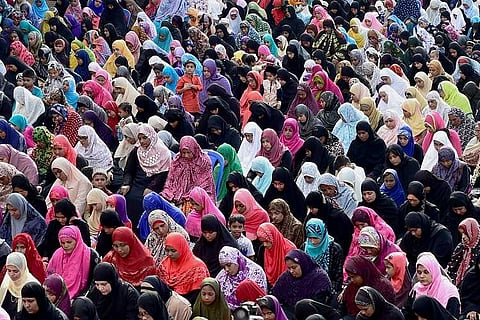

The bill that seeks to make instant triple talaq a criminal offence was cleared by the Union Cabinet on Friday, ahead of the Winter Session of Parliament.
The Muslim Women (Protection of Rights on Marriage) Bill, 2017, popularly known as the Triple Talaq Bill, seeks to give women the right to approach a magistrate to seek maintenance and make the practice of triple talaq a crime.
It will be tabled during the Parliament’s Winter Session, which commenced on Friday.
The right to equality of women is also violated, as triple talaq, the practice where a man could divorce his wife by uttering the word “talaq” three times, is often delivered via WhatsApp or Skype, the judges observed, according to NDTV.
The Hindu, which accessed the draft bill, reported that a man who practices triple talaq can be jailed for up to three years, and can also attract a fine. Citing government sources, The Hindu added that after the judgement by the apex court, there have been 67 cases of triple talaq reported across the country.
In August this year, the Supreme Court had declared that triple talaq was unconstitutional. The women's wing of the All-India Muslim Personal Law Board (AIMPLB) termed the judgement as "contradictory" and "fractured".
After that, a draft law was prepared and sent to all the states on December 1, who were asked to reply by December 10, according to The Times of India.
The bill was drafted by Home Minister Rajnath Singh, External Affairs Minister Sushma Swaraj, Law Minister Ravi Shankar Prasad, Finance Minister Arun Jaitley and Junior Law Minister PP Chaudhary, reported PTI.
On Thursday, the West Bengal subcommittee of the Muslim Personal Law Board said that the proposed bill was drafted without consulting any Islamic scholars. It amounts to an interference in personal law, the Board said, reported NDTV.